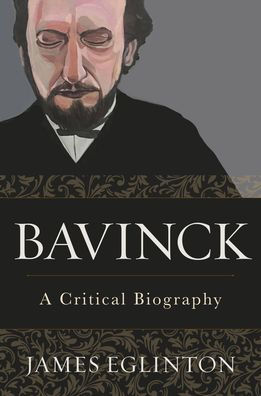A Sometimes Forgotten Figure in Our Church History


Bavinck: A Critical Biography, James Eglinton. Grand Rapids: Baker Academic, 2020. Hardcover, 450 pages.
In my corner of the Reformed world, figures in church history are often categorized as heroes or villains. If you’re either one, you stand a chance of being remembered. For example, Abraham Kuyper is considered a villain because of the way his views were imposed on the Reformed Churches in the Netherlands, especially in the 1940s. Klaas Schilder is a hero because of the way he resisted the imposition of Kuyper’s views. But if you can’t be neatly categorized, even if you’ve made important contributions, more than likely your name and however God may have used you will be forgotten.
I’m afraid that’s been the case with Herman Bavinck (1854-1921). I had a look through my childhood church history textbook, Young People’s History of the Church by W. Meijer (published in Launceston!). Figures like Schilder and Kuyper dominate. But Bavinck isn’t mentioned at all, not even once. P.K. Keizer’s Church History, a textbook for high schools and colleges, doesn’t fare much better. Bavinck is mentioned once, just in passing. I first discovered Herman Bavinck in university by reading Cornelius Van Til, the pioneer of Reformed apologetics. Van Til claimed he wasn’t being all that innovative, just building on what others had done before, and especially Bavinck.
Who was Herman Bavinck? Without spoiling the book, he was a highly-respected Dutch theologian. After a short pastorate, he first taught at the seminary of the churches established out of the Secession of 1834. Bavinck was instrumental in discussions leading up to the Union of 1892, when the churches of the Secession merged with the churches of the Doleantie of 1886. In 1902 he accepted a position to teach theology at the Free University of Amsterdam. He was also actively involved in politics, being elected as a senator to the Dutch parliament in 1911. He wrote dozens of articles and books, the most notable being his four-volume Reformed Dogmatics (which has been translated into English).
I’m hopeful that this new biography by James Eglinton will spark renewed interest in this influential figure from our Reformed church history. While it’s scholarly and careful, it’s also exceptionally readable. A few years ago, James Bratt published a biography of Abraham Kuyper (Abraham Kuyper: Modern Calvinist, Christian Democrat — reviewed here). This too was a scholarly biography, but it suffered from assuming too much about the reader’s prior knowledge of Kuyper’s context. Eglinton, on the other hand, explains everything well for the reader new to Bavinck. Eglinton has helpful features, including a map, chronology, and a list of key figures, churches, educational institutions and newspapers.
This isn’t the first Bavinck biography to appear in English. In 2010 we saw Ron Gleason’s Herman Bavinck: Pastor, Churchman, Statesman and Theologian (my review is here). Eglinton’s biography is different in that it claims to be a critical approach to Bavinck – “critical” in the sense of being analytical. Eglinton presents Bavinck as a theologically orthodox believer trying to come to terms with the modern world, a world which began to change radically after 1848. The author doesn’t shy away from some of the weaknesses, inconsistences, or doubts of his subject. Eglinton also corrects some of the inaccuracies of previous biographers, not only Gleason, but also Dutch biographers such as R.H. Bremmer. Eglinton does this by going back to the original sources, especially Bavinck’s journals and letters.
As a result of this original research, some new details of Bavinck’s life have emerged. For example, Eglinton reveals the tragic obsession the young Bavinck had with Amelia den Dekker. His journals tell the story of his apparently unrequited love for Amelia and how she broke his heart. These sorts of details fill in more of the human side of Herman Bavinck.
It also becomes clear how Bavinck isn’t easily boxed. He was a “son of the Secession,” but chose to study at the University of Leiden, a hotbed of theological liberalism. Bavinck was always confessionally Reformed, yet one of his closest friends was an atheist. He was a friend and colleague of Abraham Kuyper, yet was publicly and privately critical of Kuyper. Bavinck edited and republished a classic Reformed theological textbook known as the Leiden Synopsis, but when he wrote his own dogmatics he wasn’t just regurgitating past formulations.
Readers may also be surprised to discover that Bavinck was ahead of his time on some issues. For example, Herman Bavinck argued that there was no Scriptural basis on which women should be prevented from voting, whether in society or in the church. He wasn’t the first to make such arguments, but his voice did carry some heft in the Reformed Churches of the Netherlands. Eglinton adds some context to these views with his fascinating description of Bavinck’s wife Johanna, a woman who certainly had an independent spirit and a sharp mind of her own.
Scholars of Dutch Reformed church history are lauding this work and rightfully so. But I’d also highly recommend it to all pastors and church leaders, as well as teachers of church history in Christian schools. Not only is it informative, but it’s an enjoyable read. Best of all, it’ll leave you with a more nuanced view of how Christ has been working through complex people to gather, defend and preserve his church.


